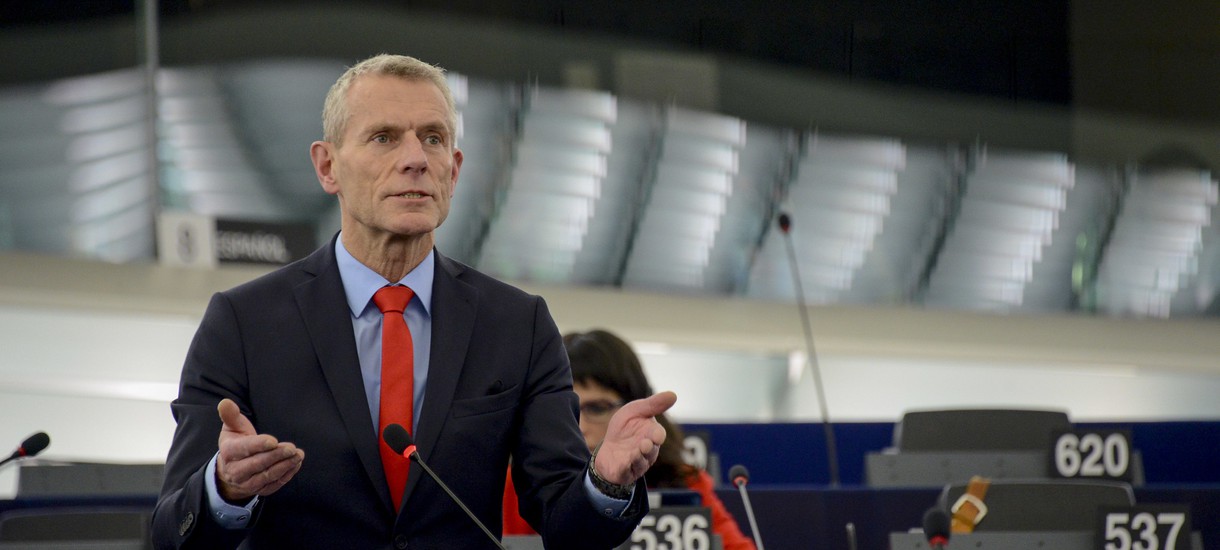In previous materials we’ve already generally informed our readers about how the European Parliament functions and which parliamentary groups are represented in it. In our interview with you we whould like first of all to focus on the radical left in the European Parliament and their group GUE/NGL. What do the radical left parties of the group aim to achieve in the EP in comparison to their goals in the national parliaments?
Our core common values on the left is our fight for social justice, democracy, ecological transition incl. tackling climate change, peace, international and solidarity and fair trade relations. We base our cooperation on universal human rights, equality and feminist and gender values. We address these topics on all appropriate levels of political decision-making. This includes of course both the national level and the European Union political level, but also the local level. We want to act and improve the living conditions locally, nationally, in the European Union, and globally.
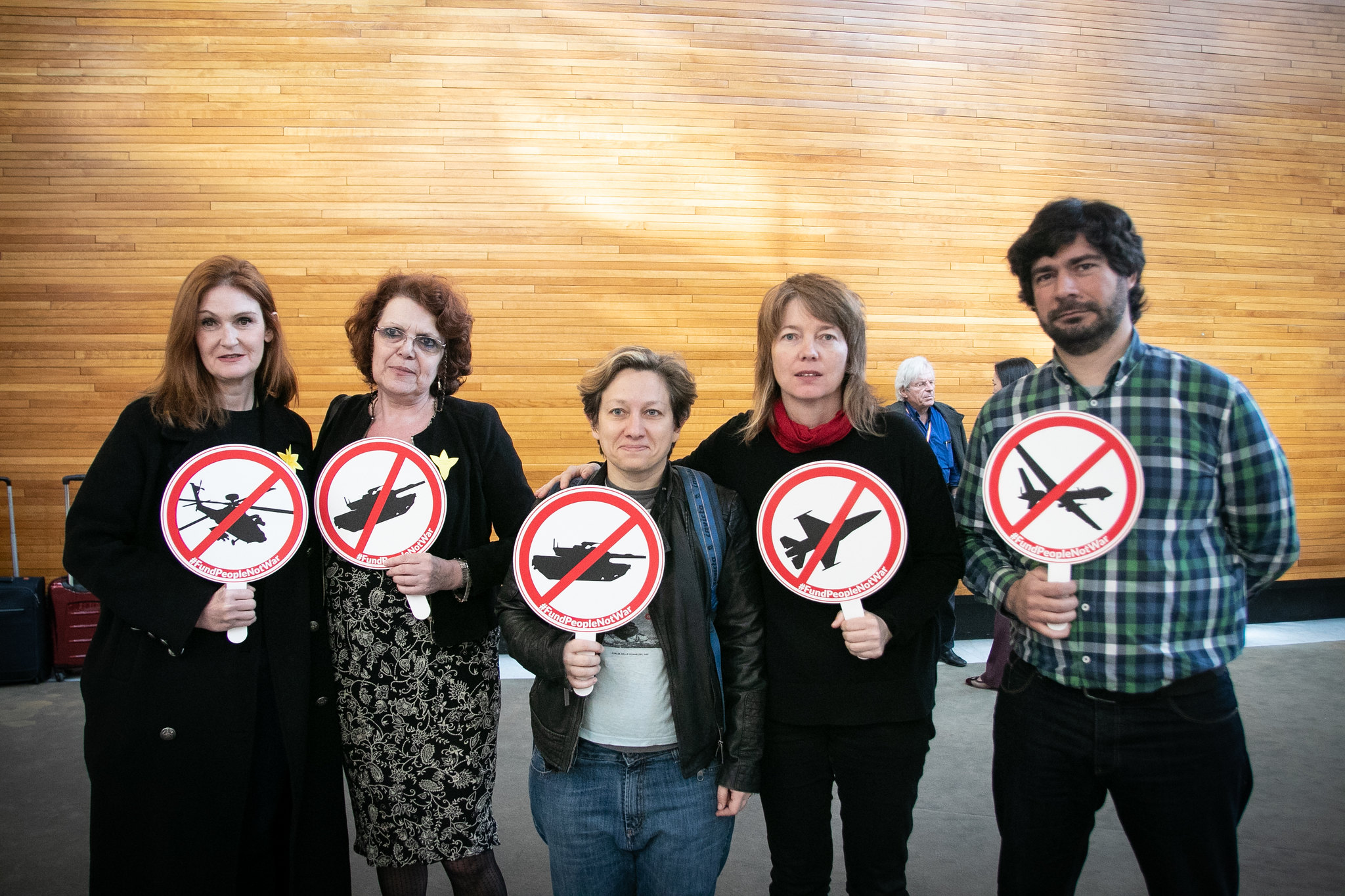
There is a strong criticism of EU among the radical left as neoliberal, anti-democratic and imperialistic project? What do you think about this criticism? Do you think it is possible to reform EU in progressive direction? If yes, what is your vision of this reform?
When we criticize neoliberalism, we should address the relevant actors, and not the EU as such. The governments of all 28 EUROPEAN Union’s Member States are composed of political parties. Most of them relate to certain political families such as the European People’s Party (EPP), the European Socialists (PES), the Alliance of Liberals & Democrats (ALDE), the Greens, or the European Left (EL). And these European political parties with a lot of national or regional Member parties acting within the frame of the EU’s Member States are also composing the European Parliament and participate in shaping and deciding on EU politics. Therefore it must encourage everybody struggling for a social just, fair and sustainable world to understand to develop strategies and implement them into concrete actions against neoliberal economic policies pursued by conservative and liberal parties (for example being Members in the current EPP an ALDE groups and reflecting governing parties in a lot of EU Member States), or against nationalistic egoistic policies focused by right extreme and political parties regardless whether they promote it on the national or on the European level. Social-democratic Parties - partly also in power in various EU MS still have to understand either to continue policies going in cooperation with forces agreeing with neoliberal economic approaches like the Blair/Schroeder style neoliberal forces leading to a substantive loss of trust among people in their countries or to restructure social-democratic policies expressing the original values of this political bloc and reflecting hopes and interests of a younger and more critical generation grown up under conditions and challenges of a globalized economic system. I will not give up our struggle against neoliberal parties and politicians on the national level. I will also continue our struggle on the level of the European Union and beyond.
We want to transform our European Union by changing the political priorities and in particular by regaining political priorities over market liberalism. We want to reduce poverty, increase income for the poorer sectors of the population in all Member States, guarantee chances and right for everybody to decent jobs, education as well as professional training and free access to health care systems. We need more and better cohesion policy, we need a common approach to modernize our industries, we must fight climate change together. We want to change the way how we measure success. It should no longer be just the figure for growth of the gross domestic product. As we have only eleven years left to implement the most urgent climate protection measures and to achieve the United Nations’ Sustainable Development Goals, the new benchmark of success for a policy and politicians must become the contribution to achieving these goals.
Do you think that European parliament should be given more power within the structure of European institutions? What about giving more power over the national parliaments?
First of all, I would like to point out that the European Parliament of today has already a lot more power than many people think. The ordinary legislative procedure in the European Union involves co-decision of the European Parliament and the European Council as representation of the Member States’ governments. The two co-legislators decide on the wording of European regulations, which become immediately the law in every Member State, as well as the text of directives, which define a corridor for national legislation which then needs to be adapted.
Still, I would insist on the need to strengthen the European Parliament with regard to exercising control over the European Commission. The executive should be controlled by the legislative and judicative powers. For instance, in Germany the government has to respond in much more detail and correctness when answering to questions raised by political groups in the Bundestag. We should create the same obligation for the Commission. Secondly, we should make it better known that the European treaties grant the right of inquiry to the European Parliament. It is scandalous, how Council and Commission have been blocking for 8 years now the necessary legislative act to define the rights of an Inquiry Committee. They are afraid of giving the European Parliament the right to call Member State Ministers for testimony, to put a fine on witnesses refusing to appear in Committee, to oblige Commission officials to say the truth in Committee. My third big demand is to give the European Parliament the right of legislative initiative. This will lead to and even require a treaty change, which is currently not an easy operation. However, the Commission could already this year develop a procedure involving a commitment to take on board legislative demands from initiative reports from parliament.
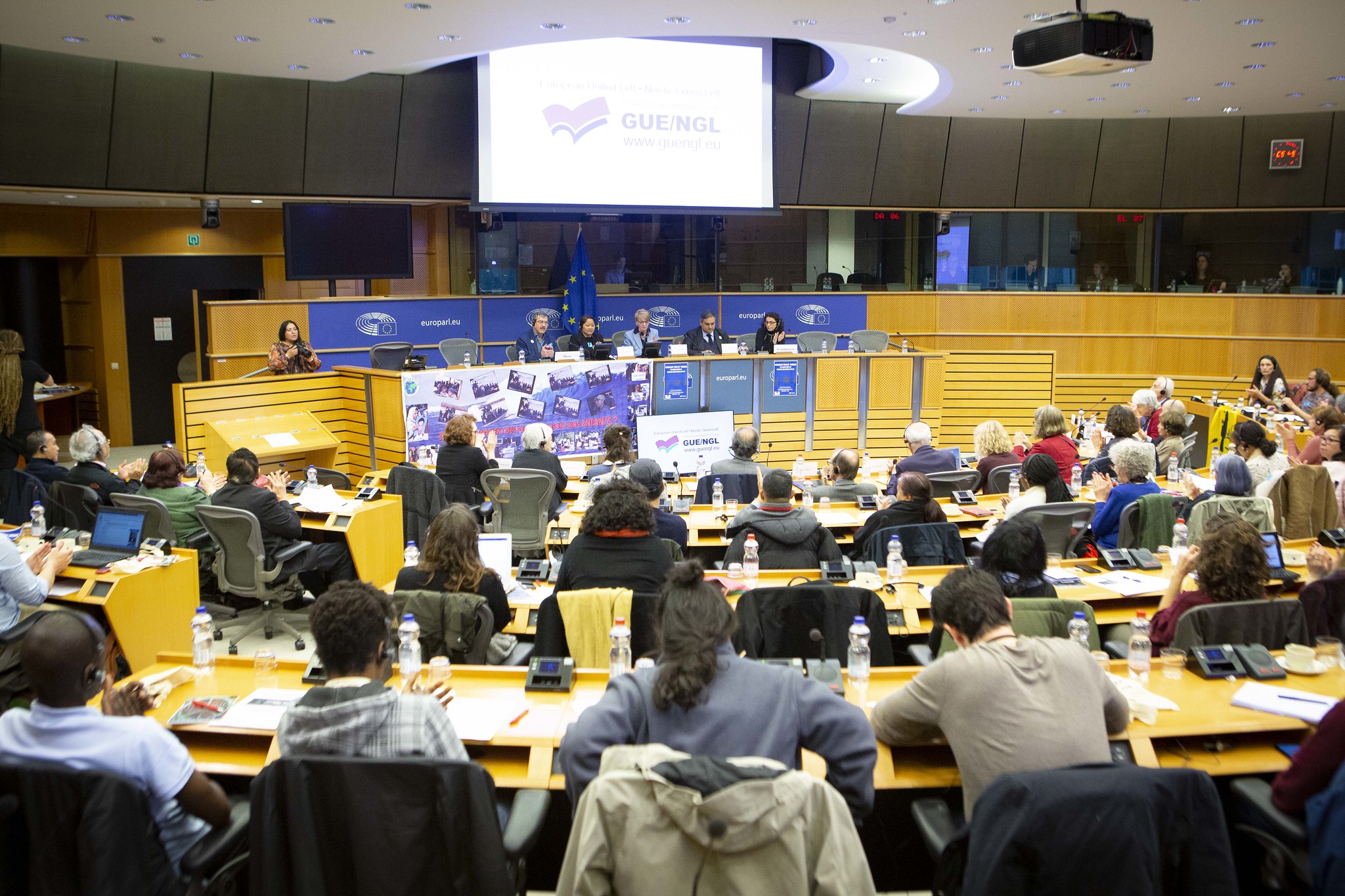
But I would also like to strengthen the national parliaments with regard to exercising control on their governments. To this end, I would like to encourage a debate in each Member State, whether a Minister can be obliged to obtain a mandate from his or her Parliament before voting in Council. Some Member States like for instance Denmark have very strong rights for their Parliament in this regard, in other Member States the Ministers do more or less what they want.
Your current term is coming to an end and a new European Parliament will be elected at the end of May. Looking back at the work of the GUE/NGL parliamentary group of the last term, what were the most important topics of the group’s work in the Parliament? How would you describe the overall content of your work over these 5 years?
Given the fact that our 52 MEPs constitute just 7 percent of the European Parliament, our group has been very visible and present in a great number of important dossiers. personally, I am very proud of my role in creating new trade defense instruments for our Union, which enable the EU Commission to act and punish companies from other parts of the world in cases of environmental or social dumping. Secondly, we were influential in forming a majority to oblige companies to practice due diligence on their supply chains for gold, tantalum, tin, and tungsten from conflict areas. Our group has also been very actively pressing for increasing the social dimension of European integration. We managed to gain a majority of the EP for inclunding as legally binding obligation the principle of same wages for same work at the same place - an important still everywhere to be implemented step forward to more social justice in the EU. We had a great impact in the development of Parliament’s proposals to close tax havens and to make large corporations pay their taxes. We were one of the initiators to invite representatives of the youth movement for climate protection to the European Parliament. We organized more than 100 conferences with representatives from civil society on Parliament premises to make their voices heard. Probably our most successful cooperation with civil society was our fight against bad trade agreements such as TTIP and CETA.
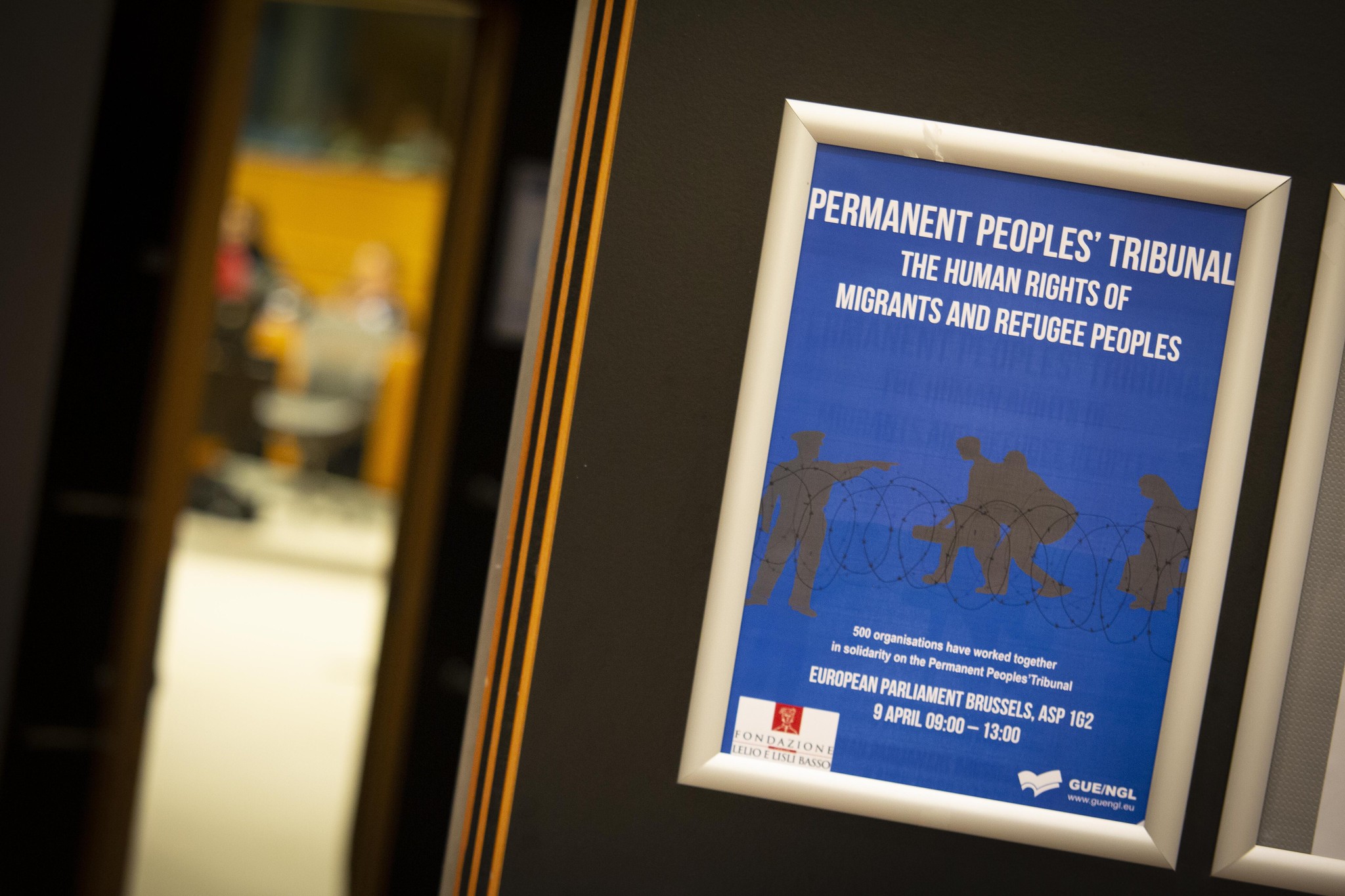
Traditional parties from the centre have been eroding and right eurosceptics are on the rise. What balance of power in the European Parliament should be expected during its next, 9th term?
It seems likely to me that at the beginning of the term, a relatively large group of far right member parties will materialize. Depending on whether or not the Brexit party will join this group of Salvini, Le Pen, the Austrian FPÖ and the German AfD, the group could gather more than 100 MEPs. The EPP still has to make up their mind, but most other political groups will refuse to cooperate with the far right. The first test will be organizing a majority in Parliament supporting either Manfred Weber of EPP of Frans Timmermans of PES as President of the next EU Commission. Macron’s new ALDE + Renaissance group will try to strike the best deal for them in this situation.
The far right group aims to be strong at the beginning of the term in order to receive a high allocation of committee chairs and Vice Presidents of Parliament. This would increase their visibility and influence a lot. They know themselves that they are bound to split after a short time, as it happened so often before when ultra nationalists pretended to form a common European approach.
For the legislative work in the years to come, we are likely to see a Parliament with changing majorities, depending on the dossier. This could provide an opportunity for a strong GUE/NGL group.
Let's talk about the radical leftist election campaign. It looks like that currently there are 3 leftist coalition making their own election campaign. An usual coalition around the party “European Left”, a euro-optimist coalition from the party “DiEM 25” and a left-populist oriented coalition “Now, the People”. What are the main differences between them? How did it happen that the Left in the EU could not find a common agreement and go to the elections as a single coalition? Will there be a reconstituted GUE/NGL in the new European Parliament or will each side try to create its own group?
All chairpersons of all the parties which are currently working together in the GUE/NGL group have committed last November to continue,to strengthen and defend the work of the GUE/NGL group after the elections. This includes the six parties cooperating in “Now, the people” from Portugal, Spain, and France, and from Denmark, Finland, and Sweden. Their approach is more critical concerning the role of the European Union, but there is no problem in emphasizing what we have in common in the framework of our confederal GUE/NGL group.
For DiEM25 their lead person Yannis Varoufakis ruled out to campaign with us, or - so far - to become a member of our group. He seems to choose the approach to position his movement rather in the liberal camp, than on the left. Still, he might become the only MEP of his party, if he receives enough votes in his new choice of his home country Germany. But he had expressed already to leave after having being elected to leave the EU political scene and to struggle at national level within the Greek national elections this years. So we have to see the concrete results of the EU elections May 23 -26, 2019.
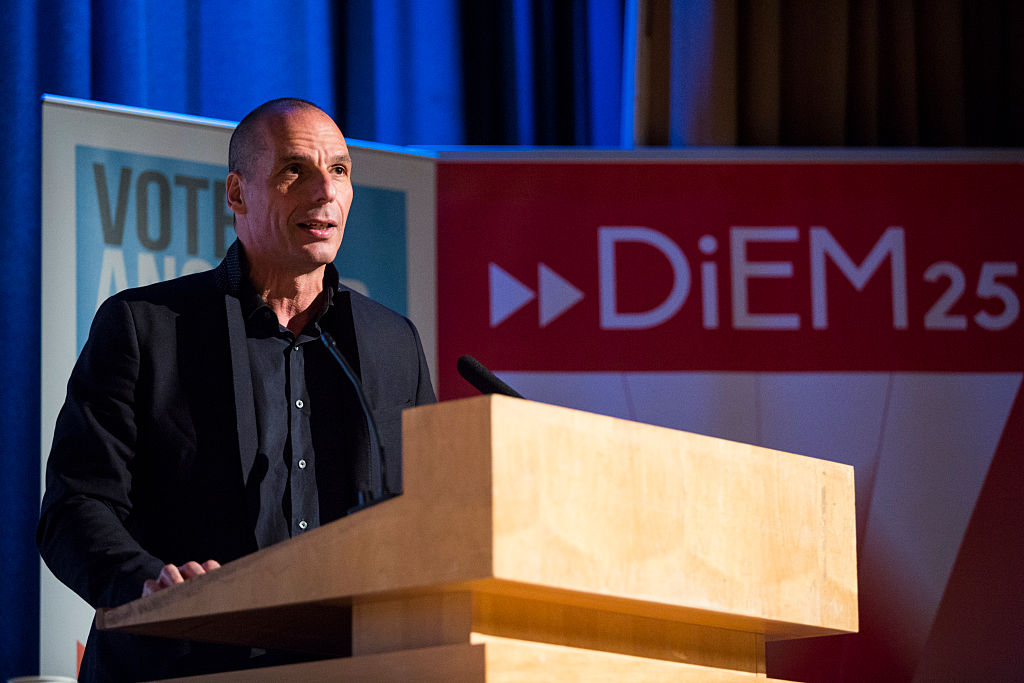
Taking into account the overall situation in the new European Parliament, what could be its policy towards Ukraine? What would be prospects of Ukraine’s joining the EU, the peace process in Donbas and other important Ukrainian issues which the EU can influence?
The development in Ukraine as well as the shaping of the bilateral relationship EU - Ukraine is obviously in the core of the EU’s Eastern Neibourhood Policy and remains till today one of the most discussed and accompanied by all political groups in the European Parliament task and challenge for the EU’s foreign policy. A majority characterises the partnership to be crucial for future stability at the European continent and a key for another development of EU- Russian Federation relations as well. The Left in the EP has stressed over the last years the necessity to turn to the inner-Ukrainian problems: fighting corruption, overcoming the systemic oligarchic structures in the national economy and their role in national politics as a kind of precondition for determining a deep rooted and comprehensive alternative towards completing the transformation of Ukrainian society successfully. This should include an decisive fight against right-wing extremism, to overcome the growing gap between rich and poor people in Ukraine.
Currently, there is some uncertainty among the political parties and groups in the European Parliament on how to interpret the result of the presidential elections. The move of President Volodymyr Zelensky to dismiss all Ministers in order to pave the way for early parliamentary elections as well as to dissolve the Rada was commented rather critical in mainstream media. Many were puzzled that he challenges the existing power structures without having yet established a party capable of nation-wide operations. Few journalists were smart enough to compare his move with what Macron did after winning the presidency of France. At the end, his newly founded party La Republique en Marche won a historic victory in the parliamentary elections.
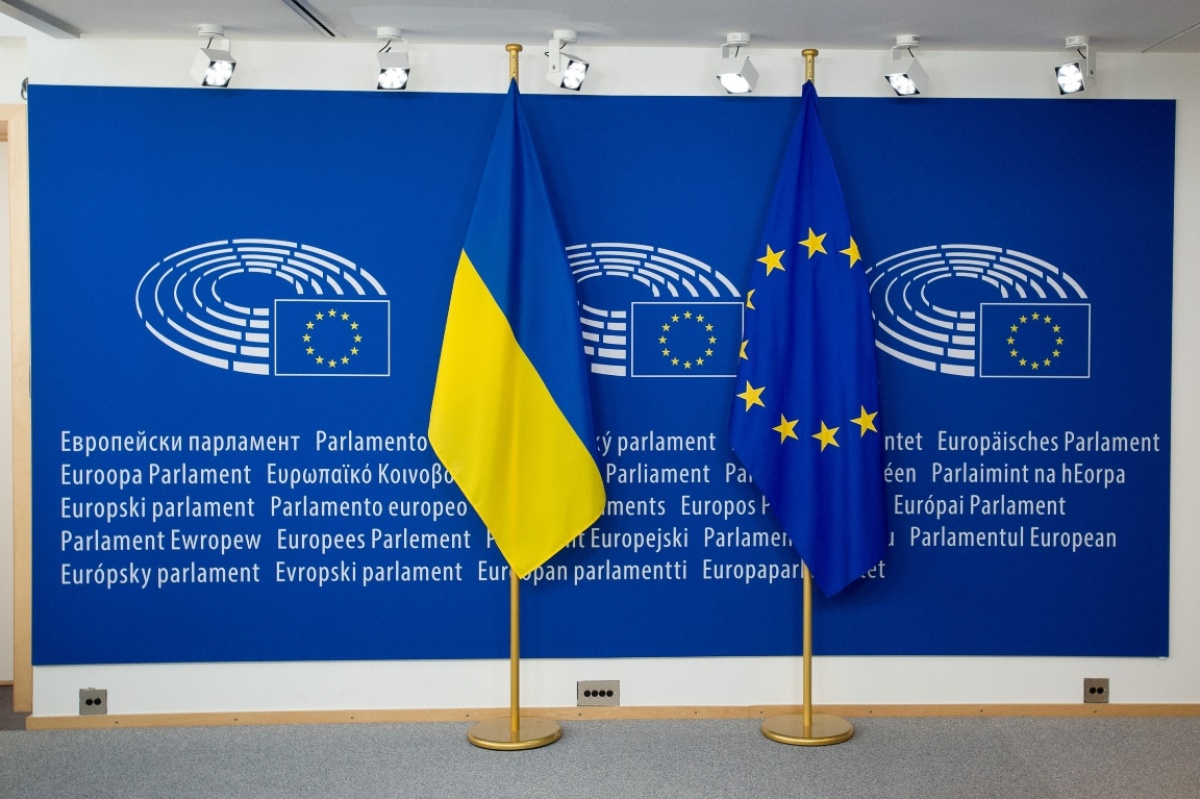
Zelensky managed to surprise and please his supporters by doing after the election what he promised during the campaign. It is yet to see whether he continues to do so when it comes to the most important issues of peace and social security. Indeed, taking into account recent polls in Ukraine most of the citizens expect a decisive policy for solving the ongoing conflict in the Eastern parts of the Republic and establishing real peace, to overcome corruption and the social gap in the society. He expressed himself so clearly pro-European that I consider it unlikely that he will be tackled openly from within the EU, although he was not the favorite candidate of the influential parties in Warsaw, Washington, Berlin, or Brussels. On the other hand it needs a crucial change in the policy of the Russian Federation’s authorities towards Ukraine as well contributing constructively to end the military confrontation and implement seriously the Minsk agreements’ obligations.
Regarding possible prospects of Ukraine joining the EU, they have been very dim already before. There was never a serious undertaking in EU’s policies to make Ukraine full Member party to the EU in a very short time. And also now, with almost 5 years’ experiences of implementing the Partnership agreement most governments of EU Member States seem not showing much appetite in a speedy enlargement of the Union. After the agreement between Athens and Skopje on the name of North Macedonia, there is now a chance to move forward the Membership perspective of some Western Balkan countries. But Ukraine, I’m afraid, will continue a relationship on the terms of its association agreement during the years to come as there is no sufficient support for membership in the larger political parties and Member States too. And the Ukrainian society must be aware that ahead an Membership in the EU the full implementation of the EU’s so called acquis communitaire must be realized, including the fulfilment of the Copenhagen criteria in the real functioning of the democratic and legal system in the country. From a Left wing perspective this is a precondition too and therefore the complexity of an EU membership should become a matter of broad discussion among all citizens about the plus and minus of EU membership, organized both by governmental as well as civil society structures, in full transparency about the steps and efforts to be went by the society and leading finally to a public vote about it.
.jpg)
The majority the European Parliament supported the right wing Ukrainian government in their policies on the conflict in Donbass and annexation of Crimea. Yet despite some attempts to promote more critical views on the socio-economic situation in Ukraine, it remains predominantly uncritical of rapid neoliberal reforms, violations of human rights, persecution of political opposition, nationalist legislation initiatives, Ukrainian radical nationalists? Why are these issues usually downplayed?
Your question is legitimate, absolutely. GUE/NGL for example has tried so often to point out the negative social consequences of the economic recipes prescribed by IMF and European Union. Unfortunately, decision makers remained indifferent. In particular MEPs from the two biggest Polish parties wanted to rush Ukraine into economic reforms that would increase the countries ties - some might call it bondage - with its western neighbours as well as with the US. Although I must admit that in recent months I gained the impression that some of the most influential MEPs in the conservative camp were losing patience with the outgoing government.
We managed to oblige the EU Commission to deliver written reports on the social consequences of policy measures related to the obligations attached to macro-financial assistance from the EU. As well as in direction of fighting corruption and strengthening the rule of law in the legal systems reforms. It remains to be observed and controlled by the new elected European Parliament which constituency will change a lot with more nationalist orientated populist parties from several EU Member states represented in the EP. We shouldn’t underestimate this aspect regarding the future EU-Ukraine relations. But I hope that the first such report linked to the reporting about implementation of the macro financial assistance obligations will provide us with an option to address more loudly the changes that need to be done in the economic framework provisions.
Curiously, on certain issues radical left in the EP happen to take the same decisions as the far right, for example in the resolution on Sentsov. What were the different motivations of the two camps which lead to the same vote in Sentsov’s case? Have there been other such cases of “agreeing” with the right wing?
My group had drafted its own textual proposal for a resolution on the case of Sentsov. If you read the resolution text, you will find a detailed and convincing expression of our concerns regarding human rights and judicial impartiality and independence. Two groups can vote “No” for very different reasons. And any voting and the reasons for the one or other Position should be made transparent and understandable for the public. Not necessary to repeat that did not accept the simplistic rethorics and accusations beyond the specific case in the mainstream resolution text.
What do you expect from the recently elected Ukrainian president Volodymyr Zelenskyi? Do you think he may win more sympathies of European progressive parties and movements than the previous president Petro Poroshenko?
As I mentioned before, the newly elected president Zelenskyi addressed very urgent issues during his campaign. Coming to peace, to end the war and to rebuild the Ukrainian society so that everybody can live on her or his own in dignity. We agree that what the people need is peace, not confrontation. We agree that Ukraine’s population needs social security and an economic perspective for all. And we might be a little bit smiling, to be honest, that all those powerful people outside Ukraine were betting on the wrong candidate. But now the time comes to deliver, words and promises must become facts and reality.
Additionally I would emphasize that President Zelenskyi, who obviously is not a representative of the progressive left, is now carrying a lot of hopes that are shared by progressive forces inside and outside Ukraine. But he has to choose which way will be the most reasonable and effective to make his promises true, even knowing about his wealthy friend, of course. And knowing about the huge challenges ahead of him as well as of all other political parties and civil society’s structures, incl. the Trade Unions to use this chance of the outcome of the last elections to restart the Ukrainian society’s transformation, to tackle the contradictions and complexities in that work.
Still, we so much wish the people in Ukraine a positive change in the political priorities of the government. It is worth a try.
